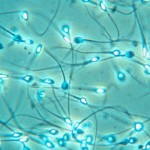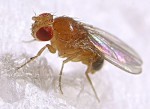Somebody has been watching too much Jurassic Park. They should read the original novel, which was a badly written Luddite pot-boiler with a bad take on genetic technology that emphasized the horrible ways technology would inevitably go wrong (that was a tiresome theme in practically all Michael Crichton novels), while the movies just highlighted the glorious resurrection of really cool animals. I guess the latest movie has hordes of perfectly healthy, vigorous dinosaurs swarming across the American West, as if that could happen.
In yet another George Church production, his company, Colossal Biosciences, proposes to resurrect the dodo, just as he said he was going to bring back the mammoth and thylacine. He hasn’t accomplished any of it. I’ll go out on a very thick limb and say he’s never going to succeed. The procedure, using CRISPR to incrementally patch dodo genes into an extant bird species, is fundamentally flawed.
To create a dodo from such genetic information, the company plans to try to modify the bird’s closest living relative, the brightly colored Nicobar pigeon, turning it step by step into a dodo and possibly “re-wilding” the animal in its native habitat.
Colossal has not yet created any kind of animal. It’s still working on developing the necessary processes. And making a dodo might not even be possible. That’s because it is hard to predict how many DNA changes will be needed to transform the Nicobar pigeon into a big-beaked, three-foot-tall dodo.
The dodo had a full, functioning, integrated genome that evolved gradually under a regime of continual selection — every intermediate was viable. Colossal’s approach is to splice a few dodo genes into a pigeon, raise it up, splice in a few more genes, etc. Those dodo genes evolved in a dodo genome. Gene A was in a cooperative relationship with gene B in the dodo, but you’ve just popped gene A into a genome that has a very different version of pigeon gene B. The gene you want to insert might be seriously deleterious in a pigeon context, and you don’t know what the relationship is. The dodo genes might also be optimized for a completely different environment, yet you’re trying to make them viable in lab-bred animals.
It’s insane. They’re going to plunk a few ancient genes into some poor pigeon and declare victory, but all they’re going to do is produce a sad fat flightless bird that is totally maladapted for everywhere, not a dodo at all, but a weirdly warped mutant pigeon. Good luck getting Chris Pratt to herd the flock around the landscape.
At least the dodo is only three feet tall…I can’t imagine what kind of botchwork monstrosity they’re going to build out of elephant stock. And they’re talking about “rewilding” these animals! The world they were adapted to no longer exists, these mutant freaks will not be able to thrive anywhere, and it’s pure fantasy to imagine they can let some loose in some environment that doesn’t want them, where the forces that drove the original extinction still exist, and get a supportable natural population. These are not serious ideas.
But they’ve got serious money.
The two-year-old startup also said today that it had raised a further $150 million in funding (bringing the total it’s raised to $225 million)—some of which will go to a new effort around bird genomics.
How do they do that? Easy. It’s all hype. They’re building on the flashy, fictional pseudoscience plotted by Jurassic Park, with an audience of stupid rich people who are impressed by CGI and confuse it with reality. Hey, if you can sell Bitcoin, you can sell fantasy animals that don’t exist to people with too much money. They even admit it.
Colossal’s investors include the billionaire Thomas Tull, the CIA’s venture capital arm, and the prominent biotech venture capitalist Robert Nelsen. Nelsen invested in the company because de-extinction “is just really cool,” he said in an email. “Mammoths and direwolves are cool.”
Oh god. Billionaires are so fucking stupid. All this money, pouring into an absurd project, and what are they going to do with it? It’s all about profit in the minds of the people throwing cash at it.
Because there isn’t much money to be made in conservation, how Colossal will ever turn a profit is another evolving question. One Colossal executive told MIT Technology Review that the company could sell tickets to see its animals, and Lamm believes the technologies needed to create the mammoth or the dodo will have other commercial uses.
Conservation isn’t profitable, but you know what is? A $225 million freak show, with dismal mutant animals in cages. Pleistocene Park! Yeah, that’s the ticket! The concept made money in that movie and book written by a guy who hated science, so let’s try that!
I knew that venture capitalists were evil and stupid, but it’s disappointing that so many highly trained molecular biologists are being sucked into this futile endeavor by all the hypetrain money flowing into it. And George Church — he used to be a well-regarded Smart Guy, but now his reputation is going to be as an ethically-challenged PT Barnum.








